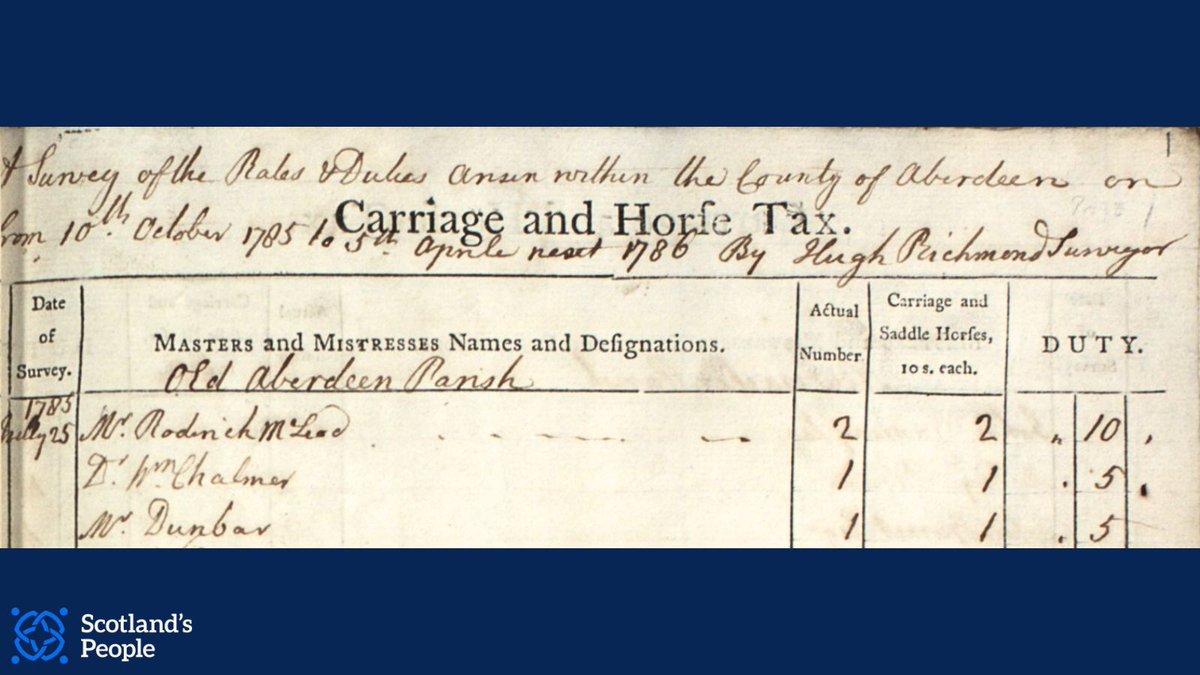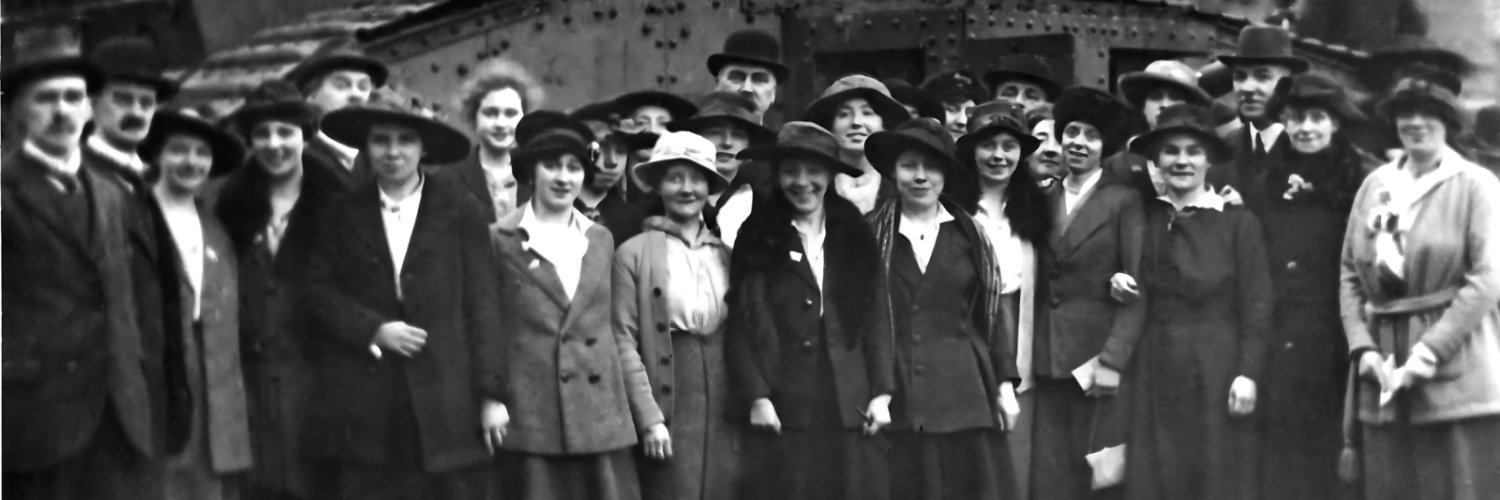
Scotland's People
@ScotlandsPeople
With over 100 million records, the Scotland's People website is one of the largest online sources of original genealogical information.
New: Take a unique tour of 19th century Scotland in Ordnance Survey Name Books. Surveyors recorded the names, details and spellings of landmarks, places and buildings between 1845-1880. Free to search and view online 👇 bit.ly/NameBooksSP
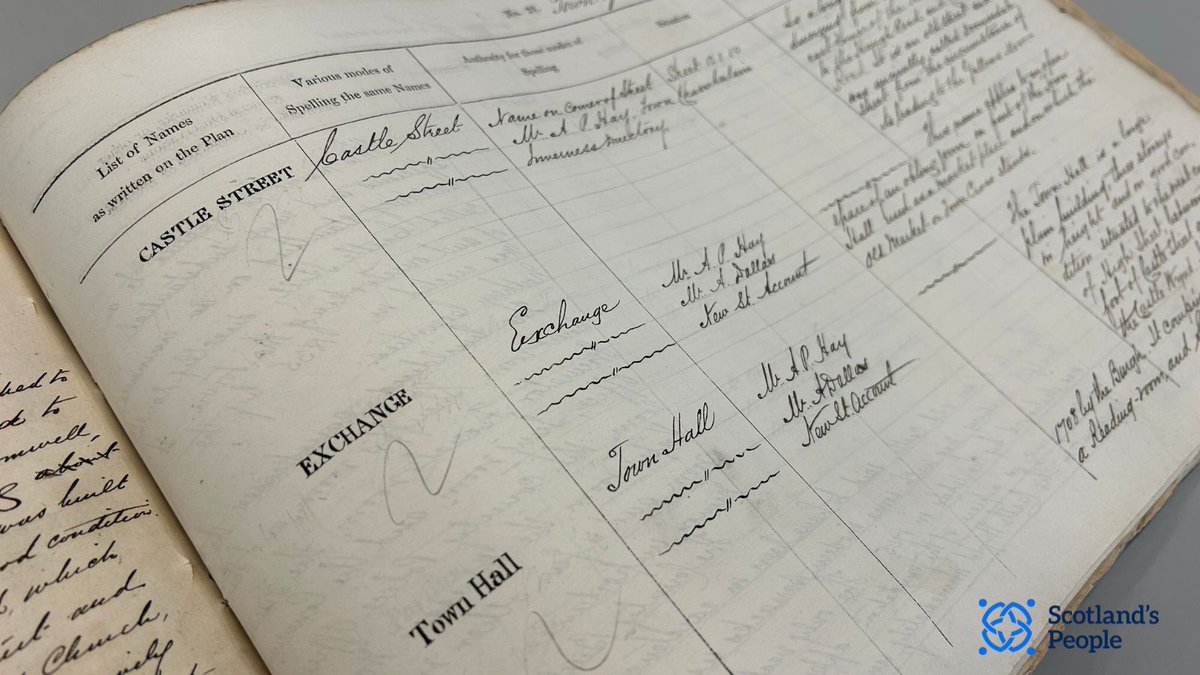
Many names that would strike people as traditionally Scottish originate from France. Bruce, Bissett, Boyle, Corbett, Gifford, Hay, Fraser? All Norman names, appearing in Scotland from the 12th century. Find out more about Scottish surnames 👇 bit.ly/SurnamesSP
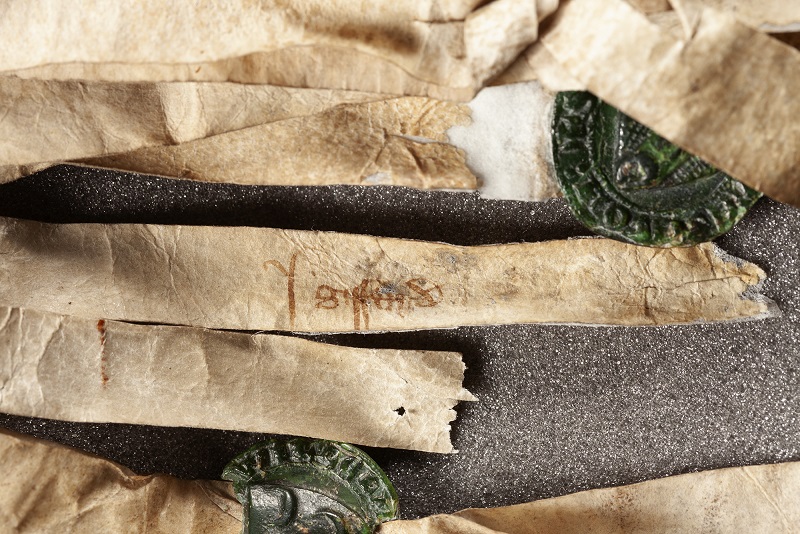
Please note that Scotland’s People will be offline for regular maintenance tomorrow evening (Wednesday 23 July) at 17:30 GMT. The site will be unavailable for about one hour.
Please note that Scotland’s People will be offline for regular maintenance this evening (Tuesday 22 July) at 17:30 GMT. The site will be unavailable for an hour.
Ordnance Survey Name Books were the first to record all of Scotland’s place names, sometimes capturing legends explaining these names. "Lookaboutye Brae", Clackmannanshire was said to have derived from a Scottish King’s hunting trip. Find out more 👇 bit.ly/OSNBGuide
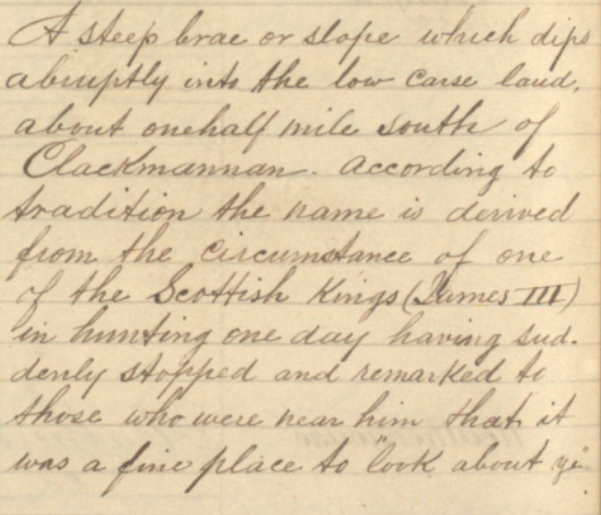
The 1921 Census was originally scheduled to be held on 24 April but was delayed until 19 June due to strikes and civil unrest. You can find evidence of this in the census itself: this entry records soldiers stationed at Blackrigg Colliery, West Lothian.
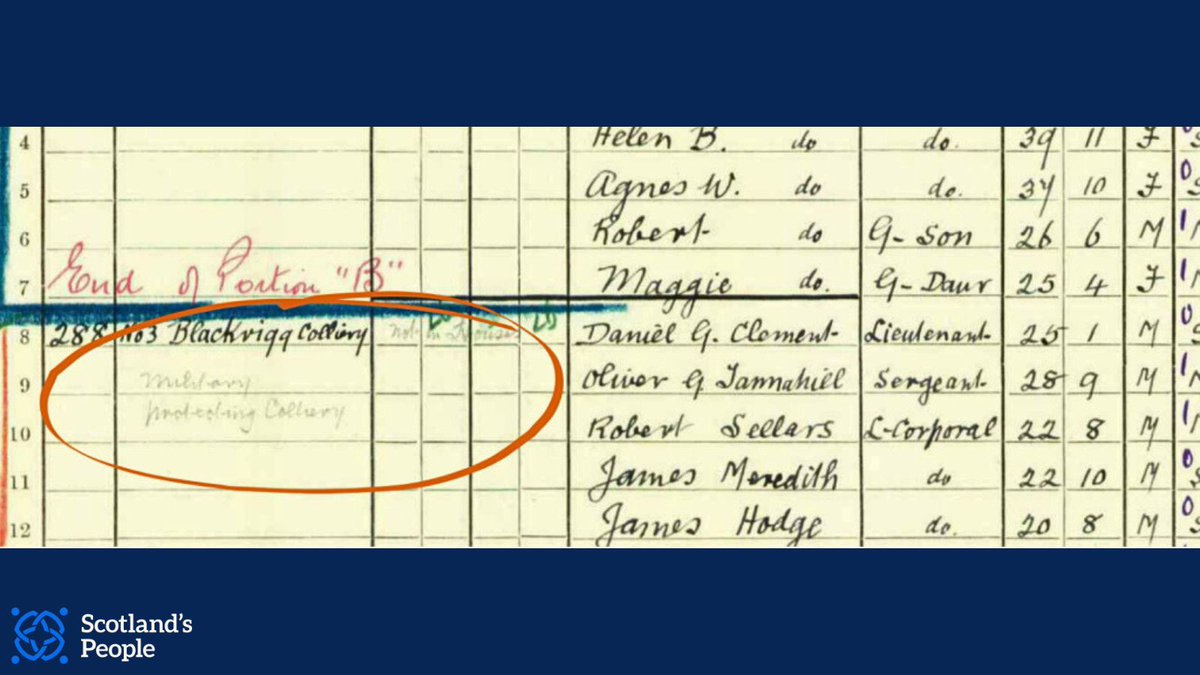
Roman Catholic parish registers contain more than just records of births, marriages and deaths. Use the “Other events” search to find records of conversions, first confessions, confirmations and more 👇 bit.ly/SPAdvancedSear…
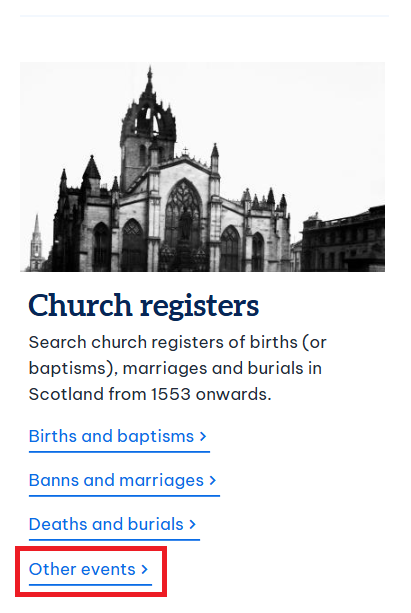
A plan of proposed improvements to the palace at Stirling Castle, April 1724. Search thousands of historic maps, plans, surveys, technical drawings and more from our collections 👇 bit.ly/SPMapsPlans
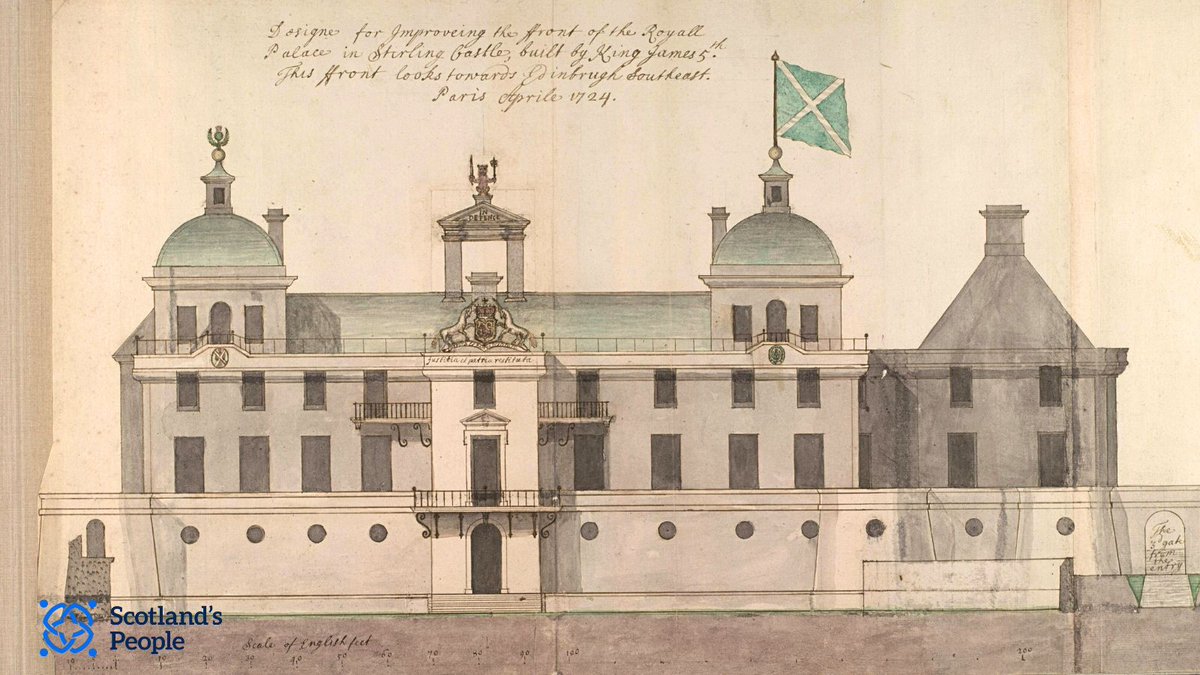
General Register House, as recorded in the Ordnance Survey Name Book entry on Boxing Day 1850. This record mentions George III, our permanent resident in marble, but the statue of the Duke of Wellington and his horse Copenhagen is missing. The Iron Duke arrived in 1852.
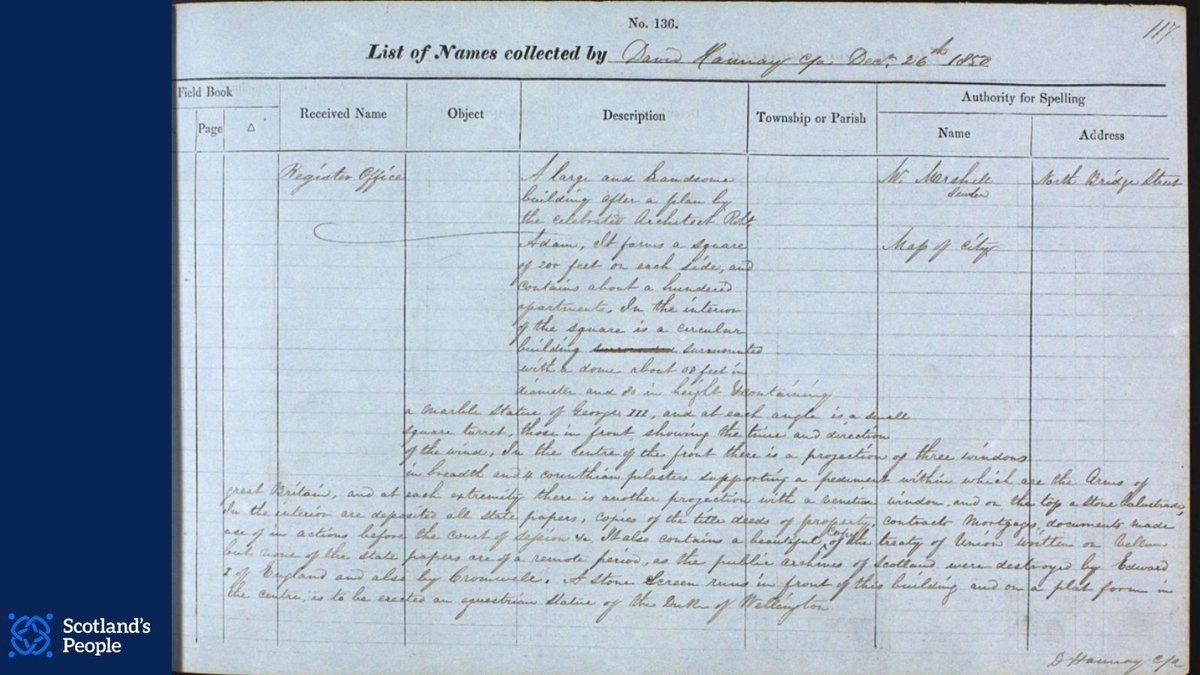
Confirming an ancestor’s religion helps you trace their life events. Before 1855, births, marriages & deaths were recorded in church registers. Search earlier records from the Catholic Church, the Church of Scotland and breakaway churches. Find out more bit.ly/SPAdvancedSear…
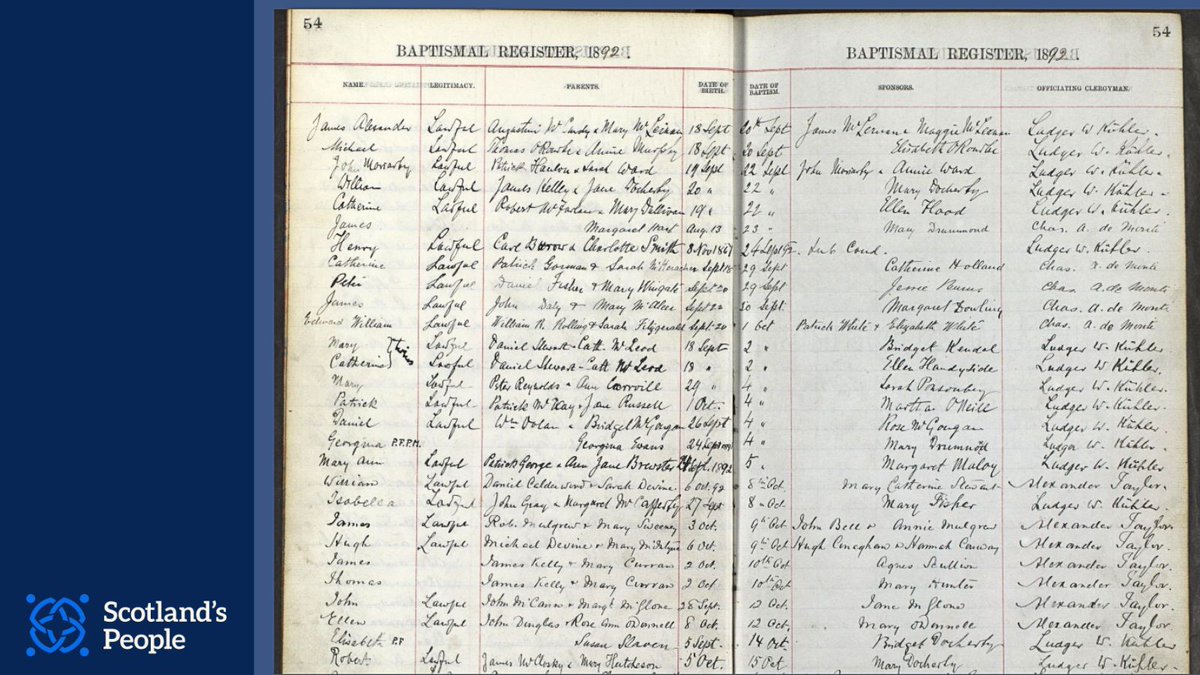
Trying to find all of your ancestors' children in our records? Search for - Their surname at birth - Add a year of birth range - The mother’s maiden name. - You can also try the date of their marriage as the ‘year from’ Any children will appear in the list of results
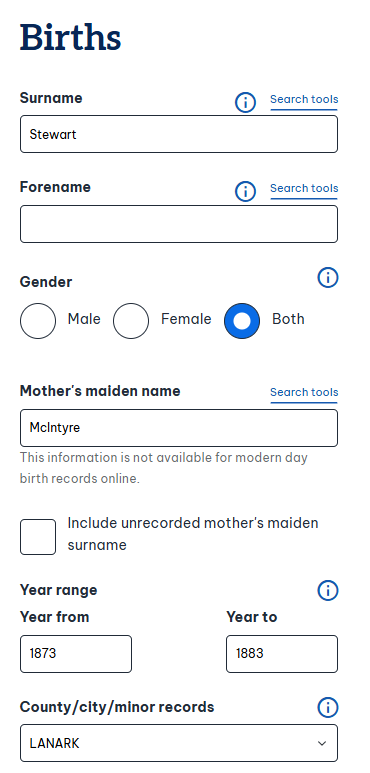
Birth entry of mystery author and playwright Elizabeth MacKintosh in Inverness, 25 July 1896. MacKintosh may be best known now for her 1951 novel A Daughter of Time, written under her pen name “Josephine Tey”, about an investigation into the deaths of the Princes in the Tower.

Records of the Scottish Women’s Land Army have lots of personality: they can contain unexpected details. These are records of women born 1874-24 who volunteered for forestry and agriculture work in WWII, born 1874-1924. Find out more bit.ly/LandArmySP
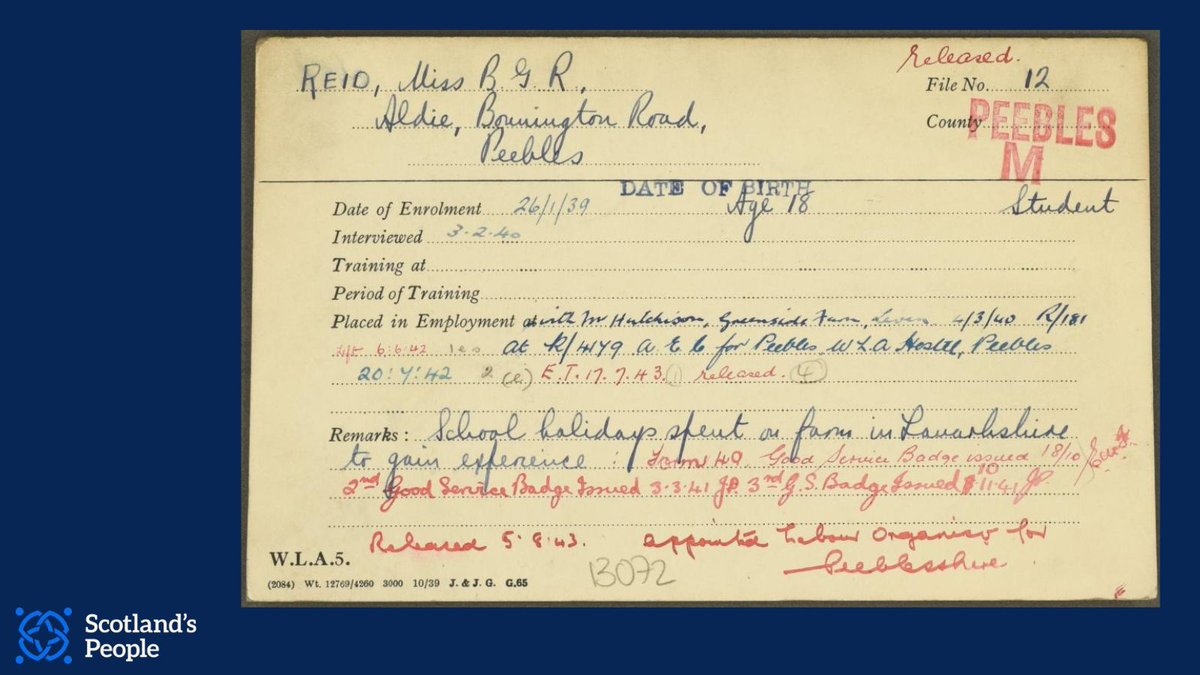
Robert Burns’ cottage in Alloway, found in the Ordnance Survey Name Book for Ayrshire, 1855-57. Search Name Books by - Record type - Year - Place - Transcription text - Reference Find out more bit.ly/SPNameBooksGui…
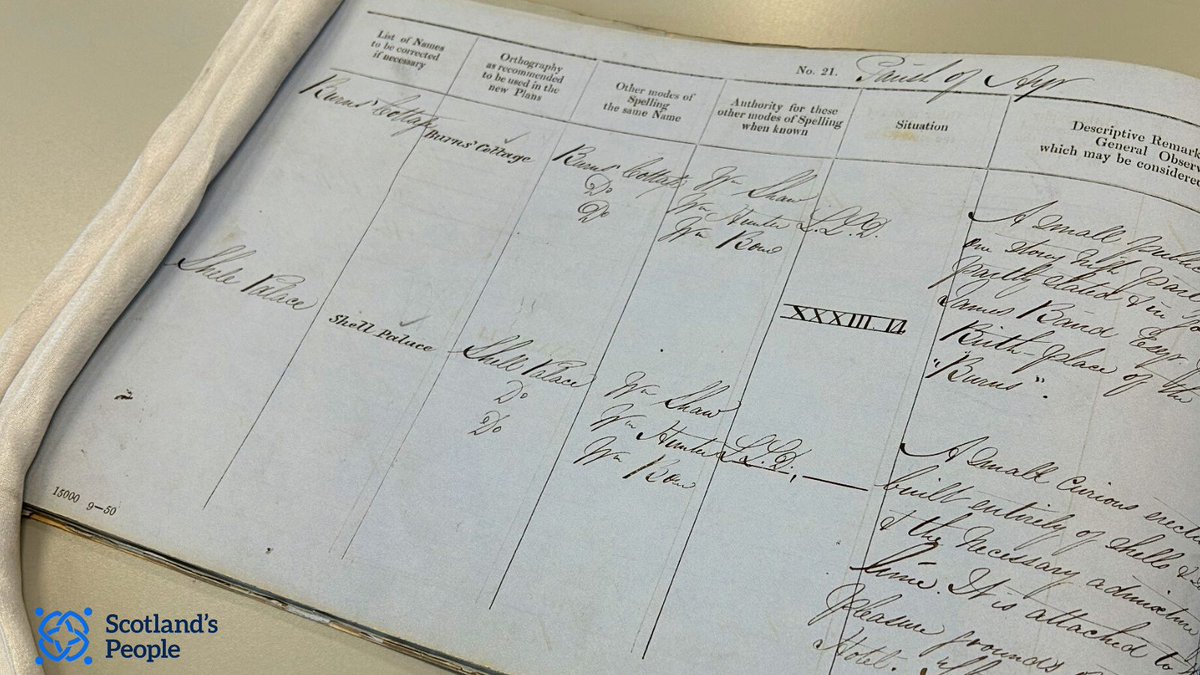
You can use Scotland’s People to research the history of your house. Census records, valuation rolls and statutory records can help you piece the puzzle together. We traced the residents of one Edinburgh house from 1881 to 1921 👇 bit.ly/SPHouseHistory
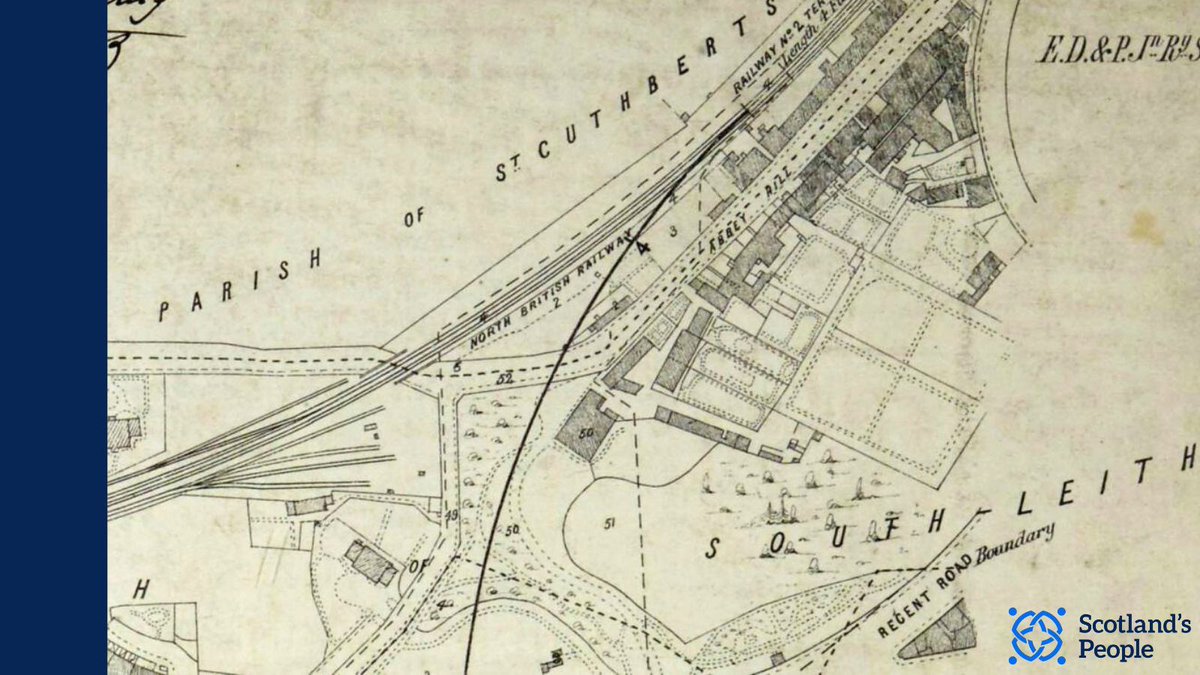
Map of the area that is now occupied by Waverley Station, Edinburgh, circa 1846. The streets and homes shown here were demolished - except for Trinity College Church, which was taken apart brick by brick and later reconstructed nearby. Find out more 👇 bit.ly/NRSLostChurch
Many common surnames are derived from an ancestor’s trade. “Baxter” comes from “Baker”, “Stewart” from “steward” and all of “Cordiner,” Soutar” and “Grassick” meant “shoemaker”. Find out more about Scottish surnames bit.ly/SurnamesSP
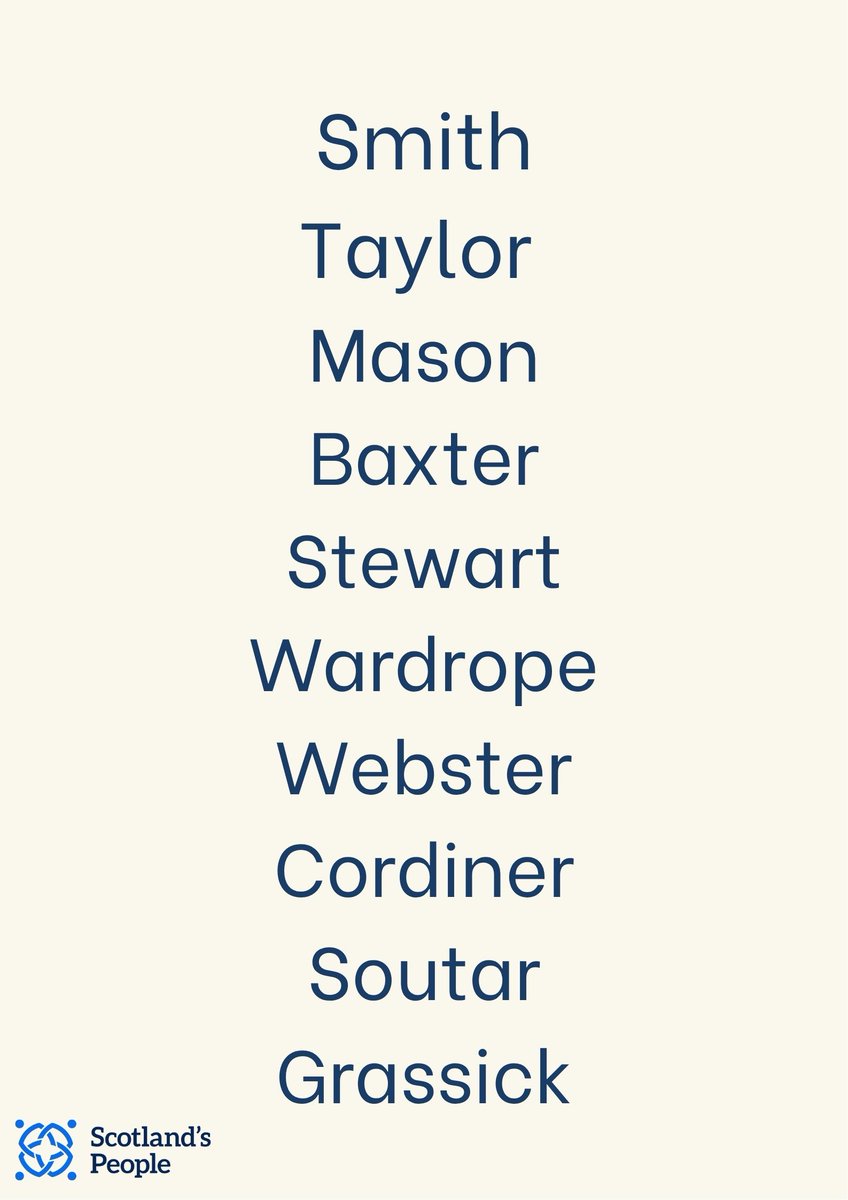
New: Treasures of National Records of Scotland Discover the most famous and significant documents in Scotland’s national archives, from the Declaration of Arbroath to the first Act of the Scottish Parliament. Find out more and buy 👇 bit.ly/TreasuresOfNRS
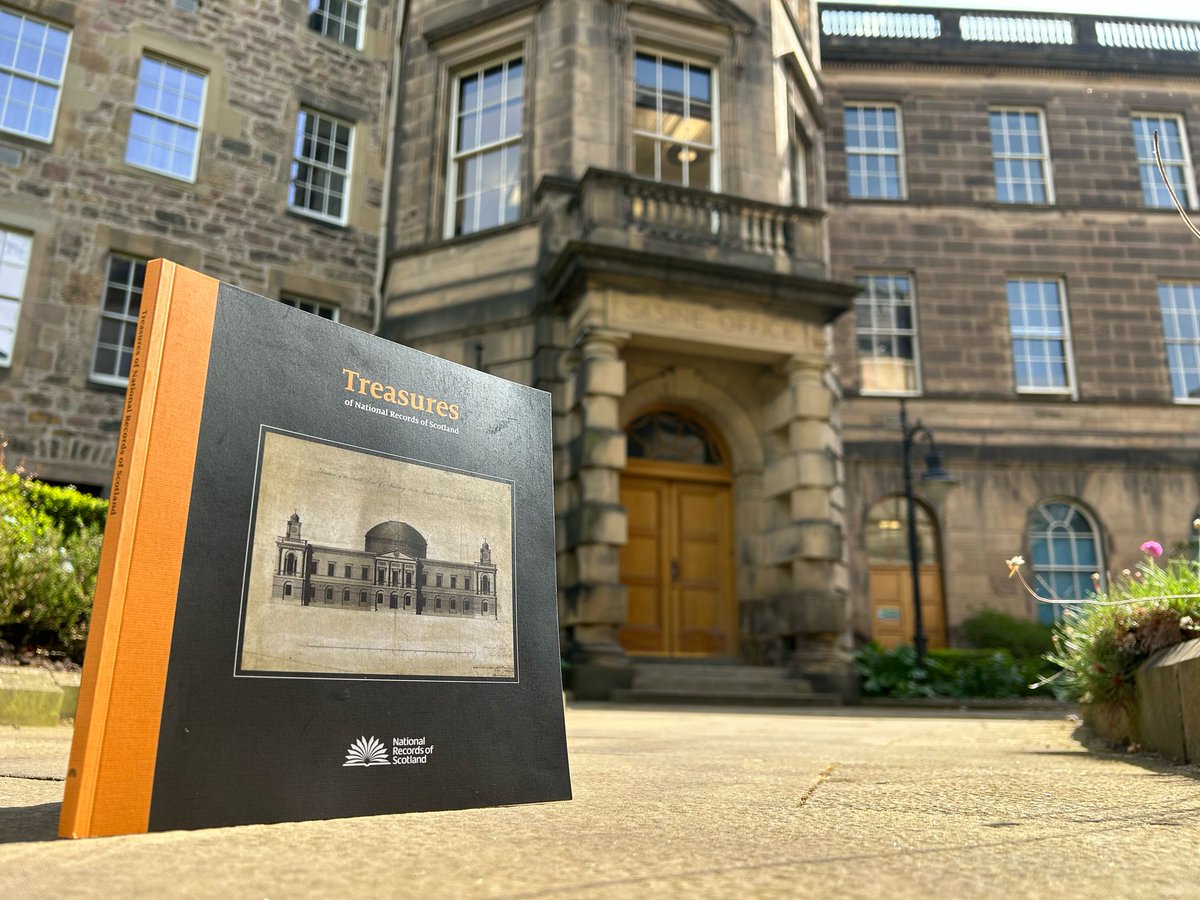
Tax rolls can help you find people going all the way back to the 1600s. Find people who paid taxes on all kinds of assets, including: - Windows - Houses & shops - Servants - Carts & carriages - Horses & dogs - Clocks & Watches Find out more 👇 bit.ly/TaxRollsSP
